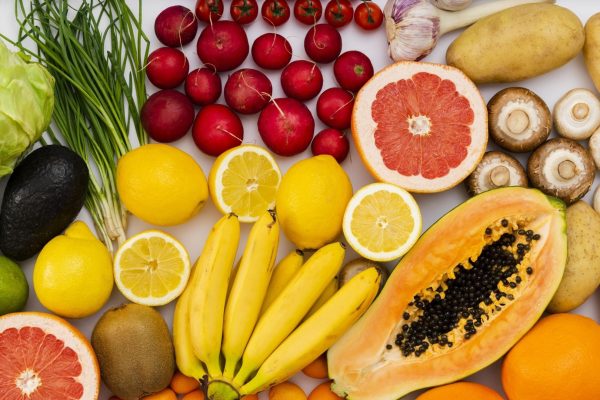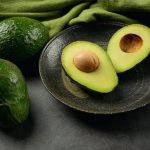When it comes to ripening avocados, mangos, or bananas, you’ve probably heard of the old “brown paper bag” trick. Just place the fruit in a brown paper bag and fold the top down. Depending on how ripe it already is, it’ll be ready in about three to four days. I do this all the time.
But when I want one to ripen even faster, I add an apple to the bag. That simple addition can speed things up by a day or two — so my guacamole is ready on Friday night instead of Sunday morning.
There’s a reason why these ripening tricks work.
It’s called ethylene, a natural ripening gas. All fruits produce it, some more than others.
When you put an ethylene producing fruit in a brown bag, it traps the ethylene around the fruit to help it ripen more quickly and evenly.
If you place another ethylene producing fruit in the bag with it, it increases the amount of ethylene trapped in the bag so it ripens even faster. (Just make sure to check the bag every day to make sure the fruit doesn’t get too ripe.)
Use Red Delicious or Golden Delicious apples for this trick. Newer varieties like Gala or Fuji were bred to produce less ethylene, so they don’t work as well.
🥦The Downside of Ethylene
While ethylene is great when you want to ripen something quickly, it does have a downside.
When you inadvertently place ethylene sensitive fruits and veggies next to ethylene producers in the same bin, it can make them spoil faster.
For example, if you store your apples next to your broccoli, the broccoli will start yellowing faster. Put your kiwis in the same bin as your cucumbers, the cucumbers are going to get soft and moldy more quickly.
Your best bet is to keep big ethylene producers like apples, apricots, ripe avocados, ripe kiwis, nectarines, ripe bananas, cantaloupes, mangos, honeydews, and ripe tomatoes away from ethylene-sensitive foods like asparagus, broccoli, Brussels sprouts, carrots, cauliflower, cucumbers, lettuce, and squash.
🍎How to Store Ethylene Super Producers
When dealing with ethylene producing produce, there are some things you can do to keep them fresh longer.
The riper an ethylene-producing fruit is, the more gas it gives off and the faster it keeps ripening. That’s why a perfect avocado today can be overripe tomorrow. The best way to stop ethylene super producers from over ripening is to put them in the fridge when they are ripe, or real close to it.
Celery generally comes in plastic bags that trap ethylene inside. This is one of the reasons it tends to wilt and yellow so quickly. To make it last longer, wrap it in aluminum foil and keep it stored in the crisper drawer.
Do your bananas get mushy too fast? You can store them on a banana hook, where there is plenty of circulation to carry the ethylene away. Or you can wrap the stems, where the ethylene is released from, in plastic wrap.
Cucumbers are extremely sensitive to ethylene gas, and they hate the cold. So store them at room temperature away from ethylene emitting produce.
🍄 🥬 🌿More Hacks to Keep Your Fruits & Veggies Fresh Longer
It’s disappointing to reach for produce and find slimy mushrooms, limp lettuce, or soggy herbs in the fridge when you were planning on a great meal.
But with a few easy storage tweaks, you can make everything stay fresh for a longer amount of time.
Slimy mushrooms: Skip the plastic wrap! Move them into a paper bag when you get home. Line the bag with paper towels, the paper absorbs moisture and prevents slime.
Limp lettuce & leafy greens: Wash, dry thoroughly, wrap in paper towels, and store in a sealed container. This keeps them crisp and hydrated without wilting.
Soggy herbs: Soft herbs (parsley, basil, cilantro): trim the ends and stand upright in a glass of water. Keep them in the fridge. The only exception is basil, which should stay at room temperature to avoid blackening.
If the herbs are woody (sage, oregano, rosemary), loosely wrap them in a slightly damp paper towel and store them in a sealable container.
And here’s something I only learned a few years ago:
You shouldn’t wash the wax off fruits like apples, plums, and pears until you’re ready to eat them. That natural wax coating keeps the fruit firm and prevents it from shrinking.
Who knew?



